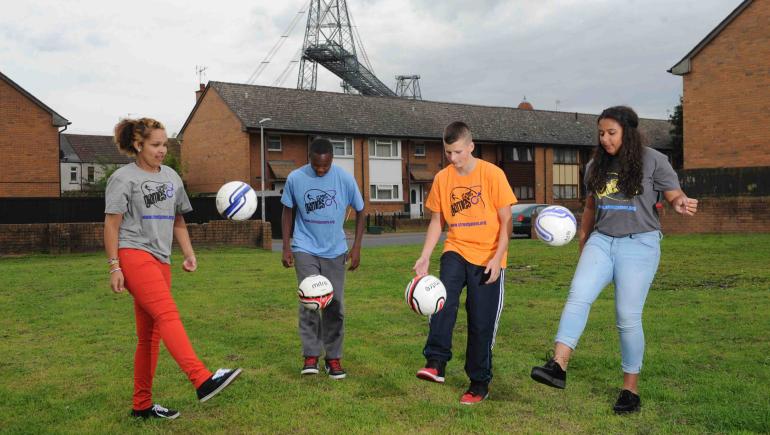Partnerships between the sport and housing sectors are under-exploited and have rich potential for social impact in communities, according to the Housing Associations’ Charitable Trust (HACT).
HACT provide ideas, innovation and support for social housing providers to work better with their residents. Sport and physical activity are a significant part of this and the organisation acts as a facilitator and evaluator in projects designed to get residents active.
Frances Harkin is HACT’s research lead and has a particular interest in the sociology of sport. She told ConnectSport why closer collaboration between sport and housing can bring so many wider benefits.
“Housing providers, by their very nature, deal with the most vulnerable and marginalised people in society and this community also tends to be the most inactive,” she said.
“The housing sector is starting to recognise the value of working in partnership with community sports organisations who have the skills and expertise to get people physically active. In turn, those community sport providers can exploit housing providers’ reach and connections to tap into and engage those hard-to-reach groups.
“Going forward, we’re keen to increase interaction between the two sectors, raise awareness of what each other is doing and understanding how best to communicate and achieve mutual outcomes.”
HACT has already facilitated and evaluated several nascent partnerships between sports organisations and housing providers:
- Sanctuary Housing delivered a 'Love Sport' programme in partnership with Sport England to engage 2,250 previously inactive groups. Activities included ballroom dancing, mindful movement and handball. HACT published its evaluation of the programme in July.
- L&Q Housing launched the 'One Goal' programme of sport and creative arts activities in partnership with eight professional football clubs’ community trusts across London and the south-east, giving young people aged five to 21 free holiday activity clubs, reducing anti-social behaviour, social isolation and increasing health and wellbeing. HACT’s evaluation of the project is set to be released before Christmas.
- Additionally, HACT have had discussions, and facilitated research events with StreetGames about how they can work together to engage more young people from disadvantaged backgrounds in meaningful sport and physical activity.
“There is already plenty of crossover in the two sectors’ aims and desired outcomes,” said Frances. “But we need to foster a better understanding within sport of what the housing sector actually does.
“They do more than just provide housing; they have a very strong social ethos and are keen to support the personal and social development of their residents through health initiatives, employment support and finance management skills.
“For some housing providers, sport and physical activity is an ideal way of engaging those people, then linking sport to those other offers of support and achieving those outcomes.”
For more information about the Housing Associations’ Charitable Trust, go to www.hact.org.uk












